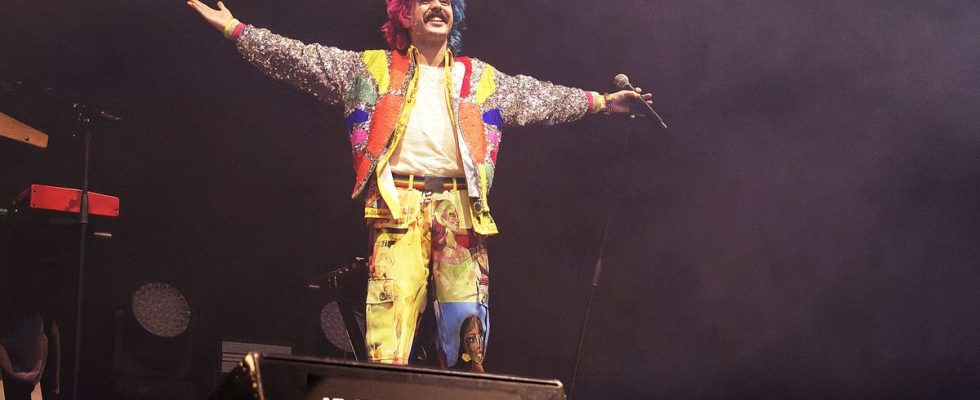She wasn’t the favorite on the starting line, but it was she who won in the end. The smallest of the four municipalities still in the running to become the European capital of culture in 2028, Bourges has finally summer favorite in Clermont-Ferrand, Montpellier and Rouen. These four cities were still in the race after a first wave of selection which had left the other five candidates (Amiens, Bastia, Nice, Reims and Saint-Denis) behind in March. It is therefore the Cher prefecture, which in 2028 will be the French beacon of culture in Europe.
What is the European Capital of Culture?
Each year, two to three cities are designated as European Capital of Culture. In turn, the states of the European Union are given the opportunity to designate the city which will then represent their country. In 2028, it will therefore be the turn of France, but also of North Macedonia, which had already designated its capital Skopje to carry out this cultural project, and of the Czech Republic, whose choice fell on the municipality of České Budějovice. A choice that resembles that of Bourges to entrust a city, little known internationally, to shine at the European level.
It was in 1985 that the idea of designating a European capital of culture was born. The culture ministers of Greece, Melina Mercouri, and of France, Jack Lang, are at the origin. They wanted to bring Europeans closer together by highlighting the richness and diversity of the continent’s cultures. Symbolically, Athens (in 1985), cradle of European culture, then Florence, the following year, main center of the Renaissance, were the first two municipalities highlighted.
What does being the European Capital of Culture bring?
Real international recognition and a boost for many projects and cultures, but not only that. Clermont-Ferrand, which defended a decentralized and rural vision of culture, thus wanted to “create bridges between rural and urban spaces, respectful of people and landscapes. » Rouen, which had focused its candidacy on the Seine, particularly wanted to take advantage of this momentum to revitalize the industrial wastelands around the river. For Montpellier (associated with Sète), it was a question of asserting the place of culture in the seventh city of France. “The expenditure of the metropolis of Montpellier and its 31 municipalities in favor of culture is the highest in France per capita,” explained Michaël Delafosse, its mayor, when launching the application.
Behind these social and cultural ambitions, it is also the economic and tourist benefits that motivated these nine municipalities to try to win the prize. Before the nomination of Bourges, Paris in 1989, Avignon in 2000, Lille in 2004 and Marseille in 2013 were in turn named as European capitals of culture. With real economic explosions at stake.
Eleven million tourists flocked to the Marseille city in 2013, with a quarter of foreign tourists, 60% more numerous than in 2012. Same thing in Lille, where nine million people visited in 2004. “We realizes that the cities will face an influx of visitors in the year of the title, and that their cultural institutions welcome more audiences than in previous years”, summarizes Sylvain Pasqua, European Capital of Culture coordination team leader to the European Commission. “A change of image took place with the year of the title.”
A change that continues since the figures for tourism and its economic benefits are much higher than those preceding the years of European capital. According to the CCI Marseille Provence and Bouches-du-Rhône Tourisme, the Mucem, the first state museum built outside Paris and inaugurated in 2013, generates 129.4 million euros in economic benefits for the department. More generally, obtaining this label is “an almost unique opportunity to catalyze the best intelligence, ideas, talents, resources of a city and to reimagine and regenerate a city and its territory over ten years”, evokes the Italian economist Rossella Tarantino, president of the jury. It was she who led the candidacy of the small town of Matera, which became European Capital of Culture in 2019, after a fierce battle among 21 applications.
Why was Bourges designated European Capital of Culture in 2028?
“It’s a medium-sized city, on a human scale, but with great ambitions,” said Rima Abdul Malak, Minister of Culture, about Bourges, designated European Capital of Culture 2028. By choosing Bourges, the committee composed of twelve European members (including two French), paid “particular attention to the contribution of the project to the long-term development of the city”. As well as “its cultural and artistic content, its European dimension, the involvement of civil society in the definition and preparation of the project presented or even its budget. »
“The Bourges 2028 cultural program is strongly committed to a low carbon impact and follows the 2030 climate and societal objectives of the European Union,” explained the city to highlight the strong points of your project. Also a “human-sized” candidacy, which wanted to “refocus Europe”. “In France, funding has been concentrated on the outskirts of metropolises rather than on small and medium-sized towns,” recalls the city. “We were somewhere in Little Thumb, the town on a human scale, of less than 100,000 inhabitants [60.000 habitants] facing metropolises which have already won because they all three have an influence and an attractiveness that Bourges did not have,” says Mayor Yann Galut (DVG).
“Small and medium-sized towns are areas of the future and are the backbone of the European Union.” Humans are presented as being at the heart of the project. A real political commitment in the age of Artificial Intelligence and its consequences on artistic works in particular. “Bourges 2028 wanted to put the artist and the author at the center of its project.” Become “a real resource center for artists and authors by offering support services in the legal fields of intellectual property, intellectual rights and copyright”.

